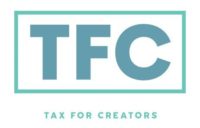In the era of digital content, creators are transforming their passions into legitimate professions. Across a wide range of platforms, they’re monetizing their skills and creativity through videos, podcasts, art, educational materials, and more. Yet, as with any profession, understanding your tax responsibilities is crucial to financial success. One aspect that many content creators may overlook is the ability to reduce taxable income through deductions. In this guide, we’ll explore the top tax deductions for Canadian content creators.
Understanding Business Expenses and Deductions
The Canada Revenue Agency (CRA) regards income from content creation as business income. This categorization comes with a significant advantage – the ability to claim business expenses as tax deductions. Business expenses are costs you incur to earn business income. By reporting these costs on your income tax return, you can lower your taxable income and, consequently, reduce the amount of tax you owe.
Deductions You Shouldn’t Overlook
- Home Office Expenses: If you use part of your home regularly and continually for your content creation work, you may be able to deduct a portion of your home expenses. These expenses could include mortgage interest, property taxes, home insurance, and utilities.
- Equipment Costs: Many content creators rely on specialized equipment, such as cameras, microphones, lighting, computers, and more. These can typically be written off as capital cost allowance (CCA), which allows you to deduct the depreciation of the asset over several years.
- Software and Online Subscriptions: From editing tools to premium platform subscriptions, these costs are part and parcel of the content creation process and can be deducted.
- Advertising Expenses: Any costs incurred for advertising your content online, such as social media ads or Google Adwords, are fully deductible.
- Internet and Phone Expenses: A proportion of your internet and mobile phone bills can be deducted if these services are used to generate business income.
- Travel Expenses: If you need to travel for your content creation business, whether it’s to film on location or to attend industry events, you may deduct travel expenses like transportation, accommodation, and meals.
- Training and Professional Development: Costs for courses, workshops, or coaching sessions that help you improve your skills as a content creator are eligible deductions.
- Legal and Professional Fees: Any fees paid to accountants, lawyers, or business consultants for business-related advice can be deducted.
- Banking and Interest Fees: Business banking fees and the interest portion of business-related loans can also be deductible.
Documenting Your Expenses
To claim these deductions, you need to keep accurate records. For each expense, you should have a document that supports the cost and explains why the expense was necessary for your business. These documents could include invoices, receipts, contracts, and credit card statements.
Understanding Capital Cost Allowance (CCA)
While many business expenses are fully deductible in the year they’re incurred, some, like equipment purchases, must be deducted over several years through Capital Cost Allowance (CCA). This allows you to deduct a portion of the cost of the equipment each year, according to rates set by the CRA.
GST/HST Credits
Remember, if you’re registered for GST/HST, you can claim Input Tax Credits (ITCs) on your business purchases. This means you could recover the GST/HST paid or owed on your business expenses, resulting in additional savings.
Consult a Professional
As a content creator, it’s crucial to take full advantage of the tax deductions available to you. Not only can they significantly reduce your tax liability, but they also represent the real costs of doing business. However, navigating deductions and understanding what applies to you can be complicated.
While this guide provides a solid foundation, remember that everyone’s tax situation is unique. For personalized tax advice tailored to your circumstances as a content creator, consider seeking professional help. Visit our CPA firm’s website to learn more about our tax services designed specifically for content creators.
If you’re a Canadian content creator looking for tax advisory or assistance, feel free to reach out to our CPAs.



